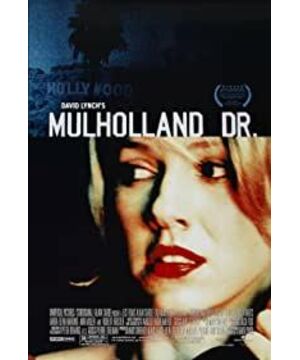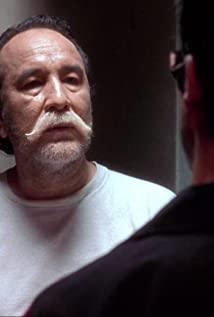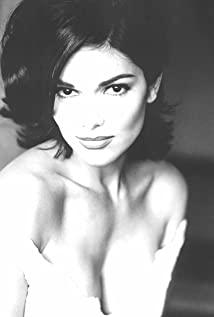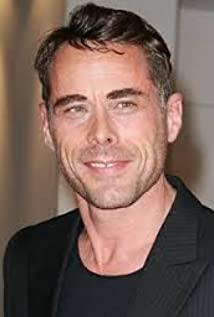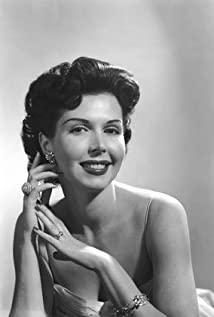About two months ago, when I was alone, I watched the movie Mulholland Road for the fourth time. Some movies are suitable for one person to watch alone and cannot be shared with others, such as this one. The intertwined scenes of day and night, the entanglement of dreams and nightmares in the film make me love and nostalgia. Betty in my dreams just took a flight from Deep River, a small place in Ontario, Canada, to LA in DreamWorks. Naomi Watts's magnetic voice kept uttering "Waoh" admiration. The taxi drove past the palm trees in Los Angeles. The tree-lined avenue seems to have a bright future for acting in front of Betty’s eyes. This is really a dream that I don’t want to wake up. At the same time, the melancholic background music reminds us: something is wrong.
"Somethin' is "Wrong" is the overall atmosphere that permeates the film. The dream will finally inevitably slip into the nightmare, and the nightmare is all composed of the elements of the dream. The same faces, characters, and scenes come from both the real life of the characters in the film and the fiction. When the film draws to a close, Diane Selwyn, a real-life actor who has failed both career and homosexuality, personally visits her former close partner Camilla Rhode’s engagement dinner. All the characters that appear in her dreams appear at this time, and are lost due to humiliation and anger. Sober Diane could hardly be said whether he had entered a certain dream state.
Both dreams and nightmares are full of the urgency of time. After the interview, Betty was brought to the studio of the young director. The director who was testing the new film was attracted by Betty in the sweet song "Sixteen Reasons" by Connie Stevens. (According to my observation, David Lynch has always liked the pop music of the 1950s. Those voices of the times sung by the voice of the times from the radio in the afternoon are often filled with housewives baking cakes. In my kitchen, there are of course the warm figure of the mother and the children playing next to the mother. This reminds me of another movie The Hours, another movie with a potential theme of time.) Right from the director When Betty fell in love at first sight, Betty remembered going to a date with her mysterious friend Rita. When time strikes, it always seems that something has gone wrong, which makes you nervous and anxious. The midnight theater in the middle of the night was a performance of time. Although the Spanish singing was separated, it also moved Betty and Rita who were sitting together. It wasn't until the singing woman fell down due to exhaustion—the singing still existed—that they realized that the performance was nothing more than a magic of time. So they returned home to discover the source of the magic-the mysterious blue key. The latter eventually leads the dream to the nightmare, and the nightmare is the reality that Diane keeps evading. Time is inevitable, and it provides Diane with the possibility of avoiding the final result. Before dreaming, she had bought a murderer to assassinate Camilla, but she herself hid in the dream after returning to her residence, and modified all the plots in the dream.
However, Meng couldn't escape the pursuit of time. The male director in Diane's dream is avoiding the "kill order" of the production company, and the appearance of Rita in the dream is a derailment of time. People and things in real life appear in dreams after changing their identities. They are all time catchers. Something went wrong, so the dream could not be completed. What is going wrong? After the acceleration of time is given, "Something is wrong" can explain all modern experience. It is the double key to enter and leave the dream. The whole movie, or most of David Lynch's movies, is a game of time, and entering dreams and leaving dreams can all be interpreted in reverse, and the moment when the feeling of something's wrong arises, most of the moments when you leave the dream and enter reality. In "The Double Life of Willonika", Wironika of Poland felt heartbeat and breathing difficulties after a certain high-pitched singing test that was too devoted. She fled to the street and sat on a bench on the side of the street. Such a moment is the moment when the body is thrown away by the soul. When the weight of the body cannot match the lightness and upward power of the soul, and when the soul has reached a height beyond the reach of the body in the baptism of church music, the pain of the body becomes inevitable. At that moment, the male exhibitionist walking by the street opened his trench coat to Veronika and exposed his sex. This too mundane or life-like object pulled her back to reality from a height, so her chest discomfort disappeared immediately. Perhaps for the audience, this scene was brought about by "something went wrong", but for Veronica, it was a shortcut from the sublime back to reality.
Time is a downward force, and it is often the opposite of the "sublime" or "beauty" pursued by humans. Wironika of Poland died of a singing that was too high-pitched, that is, a separation of soul and body. Veronica of France can't bear the performance of the mysterious puppet artist's "strange" story about the girl who dances ballet, because it is also a performance of the soul abandoning the body, it is too painful and graceful. The body was firmly held back by the existence of time, and could not keep up with the footsteps of the soul. In the works of European romanticism, all the protagonists are so young, but they are all dead. For them, only death and only the renunciation of time can fulfill their inner desires—in fact, human beings. Innocence and romance (don’t deny that everyone is a hopeless romanticist, although most people are ashamed to admit it; when the hand of time is moved by us for the first time, we have the instinct to fight ).
Time has opened the door to modernity. It is a shackle that mankind put on itself with the advent of the Industrial Revolution. It has hovered in our lives for a long time, everywhere, like a ghost. Of course we can feel the presence of this ghost, because the feeling that something is wrong often visits us. At the end of Mulholland Drive, the camera slowly rises from the angle of overlooking the night view of Los Angeles. The joyful faces of Diane and Camilla embracing each other appear in the background of the night sky. The bright lights of Los Angeles at night illuminate the night sky, but the camera is hiding in a building. On the hill without light, the silent lens brought the hint of something's wrong. Of course, there is the director’s criticism of the Hollywood star system, and his complex feelings about Los Angeles as a studio, but more importantly, this scene has been out of Diane’s dream (Diane had committed suicide at that time), but still Like a dream. It is both the silent end of Diane's dream and perhaps the beginning of another dream. Oppressed and hunted by time, we can feel that something is wrong. In this feeling, countless dreams are being done, countless drunken lives and deaths, we can't wake up.
January 31, 2009
View more about Mulholland Drive reviews


